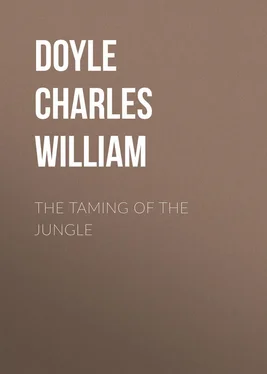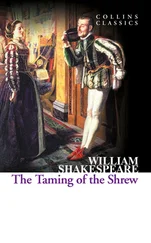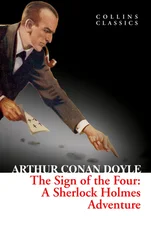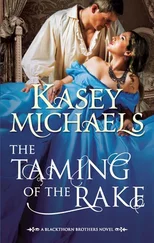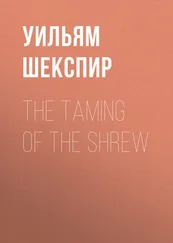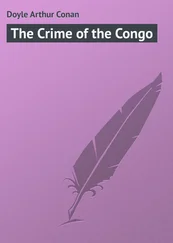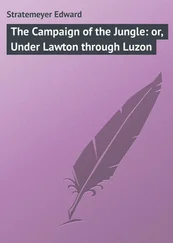Charles Doyle - The Taming of the Jungle
Здесь есть возможность читать онлайн «Charles Doyle - The Taming of the Jungle» — ознакомительный отрывок электронной книги совершенно бесплатно, а после прочтения отрывка купить полную версию. В некоторых случаях можно слушать аудио, скачать через торрент в формате fb2 и присутствует краткое содержание. Жанр: foreign_antique, foreign_prose, на английском языке. Описание произведения, (предисловие) а так же отзывы посетителей доступны на портале библиотеки ЛибКат.
- Название:The Taming of the Jungle
- Автор:
- Жанр:
- Год:неизвестен
- ISBN:нет данных
- Рейтинг книги:4 / 5. Голосов: 1
-
Избранное:Добавить в избранное
- Отзывы:
-
Ваша оценка:
- 80
- 1
- 2
- 3
- 4
- 5
The Taming of the Jungle: краткое содержание, описание и аннотация
Предлагаем к чтению аннотацию, описание, краткое содержание или предисловие (зависит от того, что написал сам автор книги «The Taming of the Jungle»). Если вы не нашли необходимую информацию о книге — напишите в комментариях, мы постараемся отыскать её.
The Taming of the Jungle — читать онлайн ознакомительный отрывок
Ниже представлен текст книги, разбитый по страницам. Система сохранения места последней прочитанной страницы, позволяет с удобством читать онлайн бесплатно книгу «The Taming of the Jungle», без необходимости каждый раз заново искать на чём Вы остановились. Поставьте закладку, и сможете в любой момент перейти на страницу, на которой закончили чтение.
Интервал:
Закладка:
C. W. Doyle
The Taming of the Jungle
Preface
For a better understanding of this story, it will be necessary to say a few words concerning the people of the Terai, – the great tract of jungle that skirts the foothills of the Himalayas, in the Province of Kumaon. They are a simple, primitive folk, and migratory in their ways: inhabiting the interior valleys of the hills in the hot weather and the monsoon, and the foothills and the Terai during the winter.
In official reports they are described as "low-caste Hindoos;" but they are as far removed from the low-caste Hindoos of the plains, on the one hand, as they are from the high-caste Rajpoots, who are the gentry of Kumaon, on the other. The monstrous Pantheism of the Brahmin is unknown to them, and the ritual and severe limitations of caste that shackle the former in all the relations of life have no influence on the Padhans of Kumaon. Tending their flocks and their herds, and cultivating their terraced fields in the summer and their patches of rye and corn in the winter, they pass lives of Arcadian simplicity among scenes that surpass Ida and Olympus in beauty, and which vie with the glades of Eden, as Milton and Tennyson described them.
"Me rather, all that bowery loneliness,
The brooks of Eden mazily murmuring,
And bloom profuse, and cedar arches charm."
Tennyson might have written that of the Terai in midwinter. And its people conform, as might be expected, to their environment. Life among them is found at first hand: their loves and hates are ingenuous, and present social aspects that must vanish before the march of civilization.
The critics may object to the manner of the courtship of Tara, as not being in accord with the marriage customs of the natives of India. To them I would reply, that the experience of a dozen years spent in intimate relations with, and in close observation of, the Kumaon Padhans, has satisfied me that these children of nature are guided strongly by their natural feelings; and that, in the selection of their wives, they are as often swayed by their affections as we are.
C. W. Doyle. Santa Cruz, California, January, 1899.CHAPTER I
A Jungle Vendetta
"This was the way of it," said Ram Deen to a circle of listeners sitting round a fire by the side of the jungle road near Lal Kooah. Ram Deen drove the mail-cart in its final stage to Kaladoongie, and with his relay of fresh horses was awaiting the arrival of the mail. He was, next to the Assistant Superintendent of the Forest Department of the District, a power on the road, and his audience, accordingly, listened to him with due respect. "This was the way of it: I owed Bheem Dass one rupee and six annas for flour and pulse and ghee, and my donkey fell sick, so that he could not be forced by goad, nor by the lighting of a fire beneath him, to rise; and I could not convey my earthenware to Moradabad and sell it, and so remove the galling of Bheem Dass's tongue.
"Then the Thanadar came, and read script to me that was written on government paper, whereof I understood but little, save that the words were Urdu, and sounded very terrible to me, who speak Gamari only, and am a poor man. And he took my potter's wheel from me, and bade his chuprassi beat me then, and daily thereafter at noon – twelve strokes each day – till I made restitution to Bheem Dass.
"Brothers, we be all poor men here, and ye know that God hath not given us understanding save to suffer stripes like beasts of burden, and to sleep and eat when we can, and beget children to succeed to our blows."
There was a deep "humph" of assent when he had ceased speaking. The little man who freighted village produce from Kaladoongie to Moradabad by bullock-cart said, as he handed Ram Deen the hookah that was circling round the fire, "A knife-thrust in the dark has settled heavier scores than thine;" and one suggested a blow from a weighted bamboo club, and another the evil eye; but Ram Deen smoked in silence, and after they had all had their say he passed the hookah to his neighbor and went on:
"Whenas my back smarted shrewdly that night from the blows of the chuprassi's shoe, so that I could not sleep, I took the oil from my chirag and anointed my back therewith. As soon as the false dawn blinked in the east I made a fire and light, without waking my son – my babe, Buldeo, and he without a mother – and I made store of chupattis with all the flour that was left, putting the remainder of the ghee on the first batch. Then I dug up three rupees and two annas that I had buried under the hearth, and waking Buldeo I fed him; and whilst he ate I made a bundle of such things as even a poor man has need of, – a blanket, a hookah and lotah, and shoes to wear through the villages, and the food I had prepared.
"And ere the village cocks waked or the minas and crows and green parrots opened council in the peepul trees, Buldeo and I were footing the jungle path to Nyagong, he holding his hand over his head to reach mine, for he was but three years in age.
"And when we had proceeded a mile or twain into the jungle Buldeo spake and said, 'Thy man-child is tired.' And I set him on my shoulder, and so carried him until the sun began to shoot slant rays from the west. Whereon we stopped and ate; and, after, I fastened him with my waistband in the fork of a tree, saying, 'Son of mine, bide here till I return, and be not afraid.'
"Then, collecting grass and scrub, I made a circle of fire round the tree, and sped back to the village; and as the bell tolled the hour of ten that night a flame leaped up from the hut of the bunnia, Bheem Dass, to whom I owed money.
"Ere I returned to the jungle path I could hear Bheem Dass shout as a man being beaten, 'ram dhwy! ram dhwy!' and the smart on my back waxed easier."
By this time the hookah had made the round of the circle and once more reached Ram Deen, and as he paused again to "drink tobacco" his listeners made comment:
"Wah! coach-wan ji," said the little carrier, "knives may be blunt and clubs cracked, but fire loveth stubble and thatch. Ho, ho!"
And Ram Deen smiled grimly as he passed the hookah to his neighbor, who said as he took it, "And what of thy man-child, Buldeo?"
Ram Deen tucked the ends of his parted beard under his turban, and spitting bravely into the fire to conceal the tremor in his voice, he said, "As the dawn broke I reached the tree whereon I had fastened my son. When I came near a pack of jackals that had been worrying something under the tree slunk away. The child was not to be seen, but the bark of the tree was scored with the talons of a leopard, and at its foot was a small red cap and a handful of fresh bones."
Ram Deen puffed the hookah in silence when it reached him again.
By and by, in response to the expectation of his listeners, he said, "Bheem Dass rode after me on the mail-cart to Kaladoongie that night. I knew he would come, and therefore I brake the telegraph wire and fastened it across the road a foot above the ground. When the horse stumbled over it and fell the driver was thrown on his head and killed. But Bheem Dass lay groaning on the road with a broken thigh-bone.
"And I held a lamp taken from the cart to my face, so that he should know me, and I spat and stamped on him; and thereafter I mounted the mail-cart and drove it over his skull as he screamed for mercy.
"I took the mail to Kaladoongie, and it was told the sahib-log that the mail-cart had been overturned and the coach-wan and Bheem Dass killed; and they made me driver because the road was unsafe and I had shown them that I was not afraid.
"Ye are poor men and know naught, – knowledge dieth suddenly!"
And the bullock driver said, "Ho, ho! coach-wan sahib, we be poor men and know nothing, and are fain to live."
Читать дальшеИнтервал:
Закладка:
Похожие книги на «The Taming of the Jungle»
Представляем Вашему вниманию похожие книги на «The Taming of the Jungle» списком для выбора. Мы отобрали схожую по названию и смыслу литературу в надежде предоставить читателям больше вариантов отыскать новые, интересные, ещё непрочитанные произведения.
Обсуждение, отзывы о книге «The Taming of the Jungle» и просто собственные мнения читателей. Оставьте ваши комментарии, напишите, что Вы думаете о произведении, его смысле или главных героях. Укажите что конкретно понравилось, а что нет, и почему Вы так считаете.
